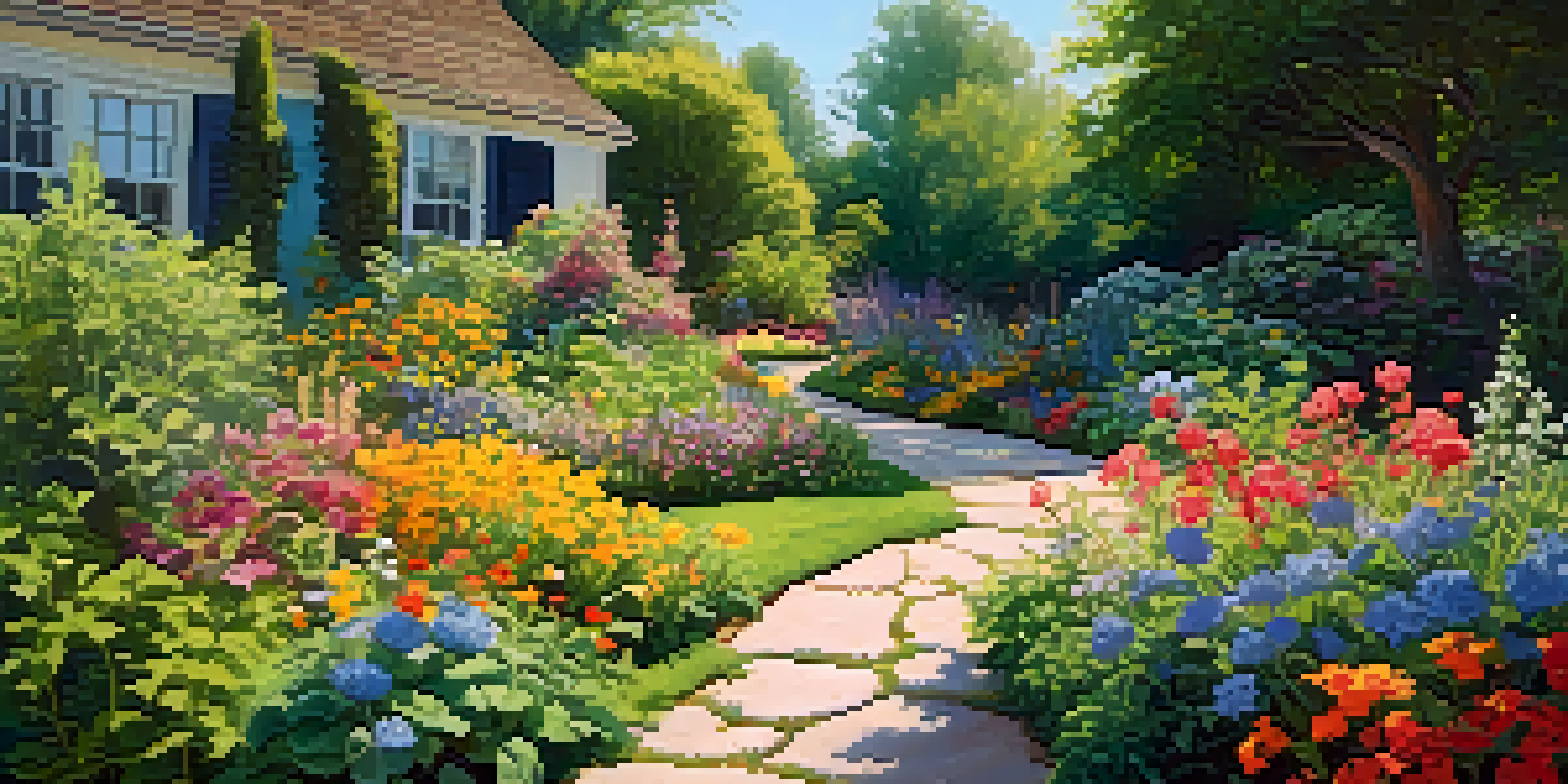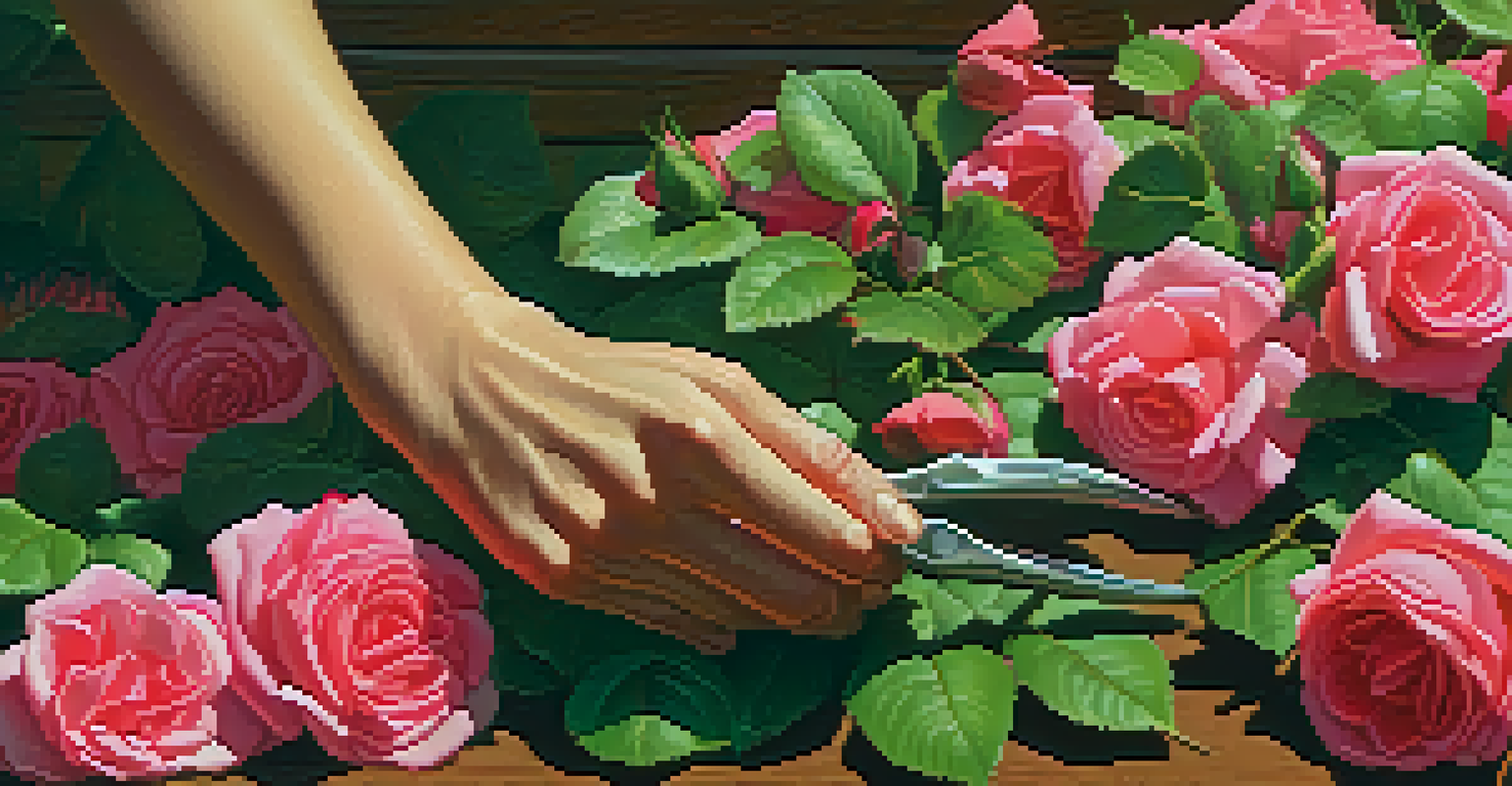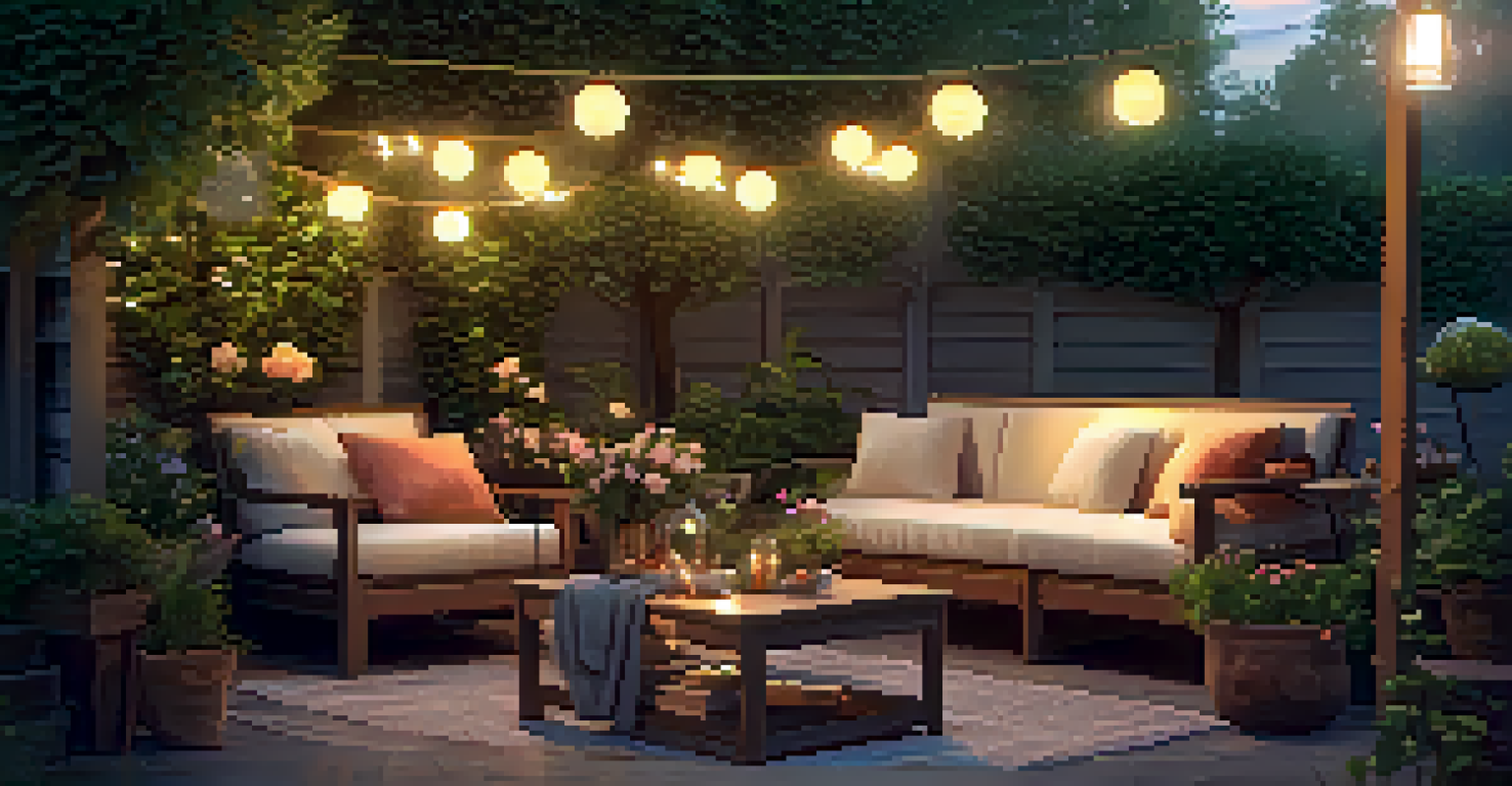Summer Garden Care: Essential Maintenance for Healthy Plants

Understanding Your Garden's Needs in Summer
As the temperatures rise, your garden faces unique challenges that require special attention. Summer is a time when plants are in full growth mode, but they can also become stressed from heat and humidity. Understanding the specific needs of your garden during this season is crucial for maintaining healthy plants.
To plant a garden is to believe in tomorrow.
Different plants have varying water and light requirements, and summer can exacerbate these needs. For instance, while some plants thrive in direct sunlight, others may require partial shade to prevent wilting. Evaluating your garden layout and plant types will help you provide the right conditions for each.
By taking the time to assess your garden's needs, you can create a tailored care plan that keeps your plants thriving throughout the summer. Simple adjustments, like relocating pots or adding shade cloth, can make a significant difference in plant health.
Watering Wisely: The Key to Thriving Plants
Watering is one of the most critical aspects of summer garden care. As temperatures soar, plants can lose moisture quickly, making regular watering essential. However, it's important to strike a balance—over-watering can be just as harmful as under-watering.

A good rule of thumb is to water early in the morning or late in the evening when temperatures are cooler. This practice minimizes evaporation and ensures that plants absorb the moisture they need. Additionally, consider using mulch around your plants, as it helps retain soil moisture and keeps roots cool.
Tailor Care to Summer Needs
Understanding your garden's specific requirements during the summer, such as water and light needs, is essential for keeping plants healthy.
Remember, the goal is to provide deep watering that encourages strong root growth, rather than frequent shallow watering. By focusing on the needs of your plants and adjusting your watering routine, you'll create a healthy environment for them to flourish.
Pruning and Deadheading for Healthier Blooms
Pruning and deadheading are essential practices that can significantly enhance the health and beauty of your summer garden. Deadheading involves removing spent flowers to encourage new blooms, while pruning helps control plant size and shape. Both techniques promote airflow and reduce the risk of disease.
Gardening is the purest of human pleasures.
For many flowering plants, such as roses and petunias, regular deadheading can lead to a more vibrant display throughout the summer. Simply snip off the faded blooms just above the next leaf node, and watch as new flowers spring forth.
Pruning can also be beneficial for shrubs and trees, helping to eliminate any dead or diseased branches. By incorporating these practices into your summer care routine, you'll not only keep your plants looking their best but also support their overall health.
Fertilizing: Boosting Growth in the Summer Heat
Summer is a time of robust growth, and fertilizing can help give your plants the extra nutrients they need to thrive. However, it's essential to choose the right type of fertilizer and apply it correctly. Organic options, such as compost or fish emulsion, can provide slow-release nutrients that benefit plants over time.
Before applying fertilizer, it's wise to conduct a soil test to determine nutrient levels and pH balance. This information will guide you in selecting the appropriate fertilizer for your garden's specific needs. Over-fertilizing can harm your plants, so always follow package instructions carefully.
Effective Watering Techniques
Watering early or late in the day and using mulch can help maintain soil moisture and support strong root growth.
Applying fertilizer during the growing season, ideally every 4-6 weeks, can significantly enhance your plants' growth and blooming potential. With the right approach, you'll enjoy a garden bursting with color and vitality all summer long.
Pest and Disease Management: Protecting Your Garden
Summer can bring a host of pests and diseases that threaten your plants' health. Being proactive is key to managing these issues before they escalate. Regularly inspect your plants for any signs of trouble, such as discolored leaves or unusual spots.
Natural remedies, such as neem oil or insecticidal soap, can be effective against many common garden pests without harming beneficial insects. Additionally, introducing companion plants, like marigolds, can deter pests while enhancing your garden's biodiversity.
Implementing a routine of monitoring and managing pests will help keep your garden healthy and productive throughout the summer. A little vigilance goes a long way in ensuring your plants remain safe from harm.
Mulching: A Simple Solution for Summer Success
Mulching is one of the simplest yet most effective ways to maintain a healthy garden during the summer months. Applying a layer of organic mulch, such as wood chips or straw, around your plants can help retain moisture, regulate soil temperature, and suppress weeds.
When choosing mulch, consider materials that will break down over time, enriching the soil as they decompose. This not only feeds your plants but also improves soil structure, making it easier for roots to access nutrients.
Maintain Garden Health Through Care
Practices like pruning, deadheading, and mulching promote plant vitality and enhance your garden's aesthetics throughout the summer.
By incorporating mulch into your garden care routine, you'll create a more sustainable environment for your plants. It's a straightforward practice that yields impressive results in keeping your garden thriving through the heat.
Enjoying Your Garden: The Joy of Summer Blooms
After putting in the effort to care for your garden, it's essential to take the time to enjoy it! Summer is the season when your hard work pays off, and vibrant blooms and lush greenery create a beautiful outdoor space. Whether it's relaxing with a book or hosting a gathering, your garden can be a source of joy and inspiration.
Consider setting aside moments each week to admire your plants, noting any changes or new growth. This practice not only brings you closer to your garden but also helps you stay attuned to its needs.

Ultimately, summer gardening is about creating a space you love. Embrace the beauty of your efforts, and let your garden become a sanctuary where you can unwind and connect with nature.